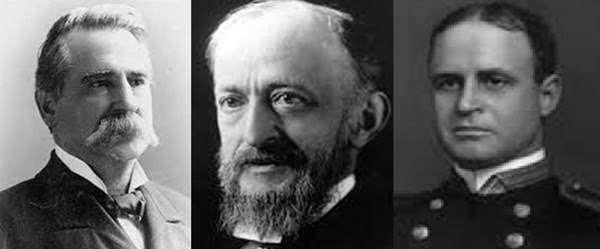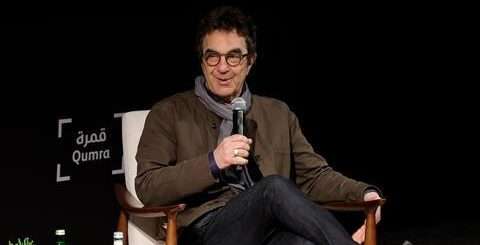How U.S. Diplomacy Failed the Armenians

By Varouj Pogharian, Bogota, Colombia
Keghart
Four U.S. envoys to the Ottoman Empire and early Turkish Republic— Alexander Terrell, Oscar Straus, Henry Morgenthau, and Mark Bristol— played vastly different roles in shaping America’s response to the devastating Armenian Genocide. Only Morgenthau rose to the occasion. The others, through passivity, restraint, or denial, contributed to the harm.
Alexander Terrell: The Art of Looking Away
Alexander Terrell served as U.S. Minister to the Ottoman Empire from 1893 to 1897, during the reign of Sultan Abdulhamid II. A former Confederate officer and Texas judge, Terrell arrived in Constantinople as the Hamidian massacres began—the systematic killings of Armenians that would claim over 100,000 lives between 1894 and 1896.
Terrell’s tenure was marked by diplomatic inertia. Despite mounting evidence of atrocities, including reports from missionaries and journalists, Terrell avoided public condemnation. He did not advocate for Armenian protection, nor did he challenge the Sultan’s regime. The dispatches he sent to Washington framed the massacres as an internal Ottoman affair. An argument can be made that his Southern worldview, shaped by racial hierarchy, may have dulled his moral sensitivity to the plight of a persecuted minority.
Terrell’s silence was not neutral. It was a form of complicity.
Oscar Straus: The Cautious Idealist
Oscar Straus, who served two non-consecutive terms as U.S. Minister to the Ottoman Empire (1887–1889 and 1898–1899), was the first Jewish Cabinet member in American history. His diplomatic style was principled but restrained. Straus believed in interfaith dialogue and quiet influence, and he worked to improve the status of Jews and other minorities within the Empire. When it came to the Armenians, his caution became a liability.
Straus’s memoir, ‘Under Four Administrations’ (1922), reflects his belief that diplomacy must be tempered by tact. He wrote: “The diplomat must often speak with caution, but he must never be without conviction.”
Yet conviction without action is a hollow virtue. During his second term, Straus witnessed the aftermath of the Hamidian massacres. He acknowledged the Armenians’ suffering but did not challenge the sultan’s regime publicly or push for intervention.
Straus was not indifferent like Terrell, nor was he hostile like Bristol (as we shall see.) But his failure to confront the Ottoman leadership or elevate Armenian voices contributed to a diplomatic culture of avoidance. His silence helped normalize the marginalization of Armenians in American foreign policy.
Henry Morgenthau: The Moral Alarm
Henry Morgenthau, appointed by President Woodrow Wilson, served as U.S. Ambassador

from 1913 to 1916. His tenure coincided with the Armenian Genocide. Morgenthau refused to look away. His moral clarity remains unmatched. He pleaded with Washington to intervene. His appeals were ignored.
In ‘Secrets of the Bosphorus’ (1918), he documented the systematic extermination of Armenians, recounting meetings with Ottoman leaders like Talaat Pasha, who openly admitted their intent to eliminate the Armenian population. Morgenthau described the race annihilation as “the greatest crime of the war,”
Morgenthau’s legacy is one of conscience. He broke with diplomatic convention, risking his career to bear witness. He understood that neutrality in the face of mass annihilation is not diplomacy—it is betrayal. His testimony laid the foundation for genocide recognition and remains a cornerstone of Armenian historical memory.
Mark Bristol: The Architect of Denial
Admiral Mark Bristol (1919-1927) followed Morgenthau with a radically different approach. As the Turkish Republic emerged from the ashes of the Ottoman Empire, Bristol aligned himself with Mustafa Kemal and the nationalist movement. He dismissed reports of mass annihilation, censored journalists, and promoted a narrative of Armenian treachery. He worked to “wipe the spot” from Turkey’s image. He viewed Armenian advocacy as a threat to U.S. strategic interests and actively undermined relief efforts. His office became a hub for denialism, shaping American perceptions of the genocide for decades. Unlike Terrell’s passivity or Straus’s restraint, Bristol’s actions were deliberate. He did not merely fail to help—he helped erase.
The Cost of Silence
Taken together, these three ambassadors represent a spectrum of American diplomatic failure. Terrell perfected the art of looking away. His indifference allowed massacres to proceed without protest. Straus embodied the limits of cautious idealism. His restraint failed to challenge systemic persecution. Bristol institutionalized denial and helped bury the truth. Only Morgenthau stood alone as a voice of moral alarm. He tried to stop the killings, but was thwarted by a government unwilling to act.
Conclusion: A Reckoning
The Armenian Genocide was not just a failure of Ottoman humanity—it was a failure of international diplomacy. The United States, through its envoys, had opportunities to speak, act, and intervene. It chose not to.
Genocide does not begin with bullets; it starts with silence. In remembering these ambassadors, we judge their silence, restraint, and denials—except for Henry Morgenthau.
*****
Varouj Pogharian was born and raised in Addis Ababa, Ethiopia. His grandparents were from  Van, Arapkir and Urfa. His family moved to Canada when he was 18. He retired from the Canadian federal government following a career that included assignments in South America. He is currently working on a historical novel, which is set in Asia Minor during the tumultuous period that spanned the reign of Sultan Abdulhamid II and the rise of the Young Turks. His narrative is poised to explore the complexities of this historical backdrop.
Van, Arapkir and Urfa. His family moved to Canada when he was 18. He retired from the Canadian federal government following a career that included assignments in South America. He is currently working on a historical novel, which is set in Asia Minor during the tumultuous period that spanned the reign of Sultan Abdulhamid II and the rise of the Young Turks. His narrative is poised to explore the complexities of this historical backdrop.





